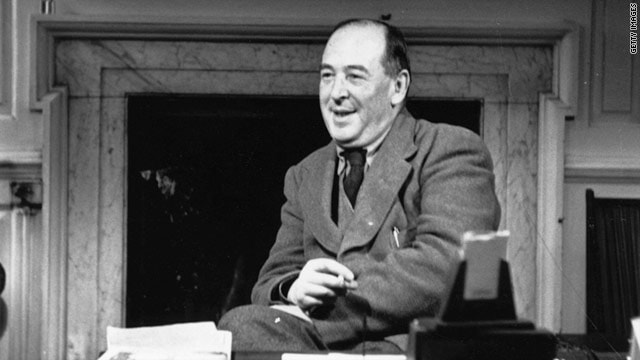Hebrews 12:18-19 Loving Father, we give you thanks for our Lord Jesus Christ, who, even as a young boy, astounded learned men with his understanding. So focused on pleasing you was he, that he astonished his parents, even in the midst of their worry and concern. His love for and commitment to you was so great at an early age, that he knew he must be in your house. Gracious God, as our Lord Jesus, who at such a tender age knew, loved, and followed you so faithfully, enable us to do the same. Help us to increasingly grow in wisdom, stature, and in favor with you and others, even as we love and serve you and others. We humbly ask this in the name of our Savior. Amen. (from Luke 2:47-52)
0 Comments
Isaiah 37:1-7 Theodoret of Cyr: In everything he taught the benefit of hope in God: the person hoping in God, he says, and fed by him will enjoy the goods supplied by him while those who find delightful constant converse with him will most of all attain them. Do you trust the Lord when times are tough, when you see those who do not appear to care about the things of God prospering? I believe our trust grows as our eternal perspective becomes clearer. How little would we worry about the things of the world, or value the things of the world, if we saw things more clearly from God’s perspective? If we valued what God values?
The Psalmist encourages us not to fret about those who do evil or be envious of those who do what is wrong. Instead, we should not wander off to the right or left, but continue down the right path, trusting God the whole way, obeying him as we travel. Better yet, as we travel with God let us love what he loves and desire what he desires. How do we discover what those things are? Theodoret tells us we do so by conversing with God continually. And as we speak with, and listen to our loving God, he will not only show us what delights him, but will give us those things as well. But we must be patient with God. He reveals and gives according to his schedule, not ours. We must trust that he always has our best interest at heart and knows what our best interest is. When we’re certain of those two truths, we can be at peace because we know we are being well loved and cared for. Beware in your prayer, above everything, of limiting God, not only by unbelief, but by fancying that you know what he can do. (Andrew Murray)
This Week’s Scripture
Adoration Psalm 66:1-4 Shout for joy to God, all the earth; 2 sing the glory of his name; give to him glorious praise! 3 Say to God, “How awesome are your deeds! So great is your power that your enemies come cringing to you. 4 All the earth worships you and sings praises to you; they sing praises to your name.” Praise, My Soul, the King of Heaven (verse 1) Praise, my soul, the King of heaven, to the throne by tribute bring; ransomed, healed, restored, forgiven, ever more God’s praises sing. Alleluia! Alleluia! Praise the everlasting King. (Henry F. Lyte) Take time now to offer God your praise and worship. Confession Remember Jesus Christ, risen from the dead, the offspring of David, as preached in my gospel, 9 for which I am suffering, bound with chains as a criminal. But the word of God is not bound! 10 Therefore I endure everything for the sake of the elect, that they also may obtain the salvation that is in Christ Jesus with eternal glory. 11 The saying is trustworthy, for: If we have died with him, we will also live with him; 12 if we endure, we will also reign with him; if we deny him, he also will deny us; 13 if we are faithless, he remains faithful—for he cannot deny himself. (2 Timothy 2:8-13) Have mercy upon us, O God, according to your lovingkindness. According to the multitude of your tender mercies, blot our transgressions. Wash us thoroughly from our iniquities, and cleanse us from our sins. For we acknowledge our transgressions, and our sin is ever before us. Create in us clean hearts, O God, and renew a right spirit within us; through Jesus Christ our Lord. (W.E. Orchard. The United Methodist Book of Worship) As David did in Psalm 139, ask the Lord to search you and know you through and through. Confess the sins God brings to mind, knowing you are forgiven and that He will cleanse you from all unrighteousness (1 John 1:9). Thanksgiving Mighty God of mercy, we thank you for the resurrection dawn bringing the glory of our risen Lord who makes every day new. Especially we thank you for the beauty of your creation, the new creation in Christ and all gifts of healing and forgiveness, the sustaining love of family and friends, and the fellowship of faith in your church. In Christ we pray, Amen. (from Daily Prayer) Spend some time reflecting on the prayer of thanksgiving above and then thank God for who he is and the many ways he has poured out his goodness and grace in your life. Supplication (Petitions – prayers for yourself)
Supplication (Intercession – prayers for others)
Send me now, my God, to accomplish all you have assigned to me. Let me live and work without fear and timidity. Amen. (Reuben Job) by Natalie Tedder
A couple of weeks ago I rewatched one of my favorite movies, the 2015 animated adaptation of Antoine de Saint-Exupéry’s novella “The Little Prince.” It’s an unspeakable tender film, dealing with themes of grief, memory, imagination, love, and the achingly bittersweet journey from childhood to adulthood. If you haven’t seen the movie, I’ll give you a brief synopsis. Instead of only using the Little Prince novella as its plot, being as brief a story as it is, the film places the story into a larger narrative. On the outset, a little girl (who is given no other name, hence why I’ll only refer to her as “the little girl”) and her mother have just moved into a new neighborhood to be in closer proximity to a prestigious prep school. The two are kind and love each other very much, but are intensely driven and plan to squeeze every ounce of their summer in preparation for the school year ahead. The mother creates a whole “life plan” for her daughter, telling her warmly that she’s “going to make a wonderful grown up.” However, a wrinkle in their plan appears in the person of their neighbor, an eccentric old man. In a neighborhood of identical gray modern homes, the man lives in a peculiar three-storied house bedecked with trailing ivy and complete with a precarious, perch-like wooden balcony for his telescope. The little girl avoids the old man at first, suspicious of his antics. But after receiving small installments of a story about a Little Prince via paper airplanes, the little girl becomes curious, and eventually befriends the man who is both an aviator and the narrator of the Little Prince. And thus the story of the Little Prince and our larger story of the little girl are interwoven through the film. The Little Prince brims with scenes that both pull on your heartstrings and make you think. But on this viewing, I was struck most by one of our antagonists, the Businessman, who counts and owns the stars, eventually housing them in an enormous domed glass bell jar. He explains to the little girl that he’s finally found a way to make the stars “useful,” and the film shows how he crushes and converts stars into electricity for the whole city. The Businessman is our obvious enemy in the movie, turning bicycles into paperclips and tyrannically running a colorless planet. We can clearly see that the Businessman is wicked, so we’re predisposed to think that his actions are evil. So I thought to myself, setting aside his selfish motivations, what is the true evil of capturing the stars as he does? After all, he certainly demonstrates how, in a strange way, it helps the planet. Well it strikes me that the Businessman’s problem, intertwined with his greed and endless quest for gain, is that he fails to recognize the Beauty of the stars. He only lives to see what might be gained from them. He has no use for the awe they inspire, only the energy they create. And oh, what a mirror: how quickly we fail to relish Beauty. This scene made me ask perhaps not a preposterous question: Would humans turn from admiring stars to commodifying them if we could? If we could capture them, would we try and find their utilitarian use? While I watched these scenes, I kept thinking of Walt Whitman’s poem, “When I heard the Learn’d Astronomer” When I heard the learn’d astronomer, When the proofs, the figures, were ranged in columns before me, When I was shown the charts and diagrams, to add, divide, and measure them, When I sitting heard the astronomer where he lectured with much applause in the lecture-room, How soon unaccountable I became tired and sick, Till rising and gliding out I wander’d off by myself, In the mystical moist night-air, and from time to time, Look’d up in perfect silence at the stars. It’s a simple poem, one with meaning easily grasped, I think. Whitman writes a brief but poignant vignette of how the study of the natural world can often be devoid of wonder. The “Learn’d Astronomer” has come to mind many times when I think of how we race forward with technology but don’t seem to have a proper sense of what it means to be human. To what end are we racing forward? Mere understanding? Convenience and ease? The Little Prince sees the Businessman counting his stars and asks, “what good does that do you?” I think Whitman’s narrator asks the same: What good is it to know all of the charts and figures of stars but to forget what it is like to be dumbfounded by their glory? To be stilled by their brightness? ~~~ The morning after I rewatched the film I awoke to gray skies and the promise of a storm, and I sat by my window to read St. Augustine’s Confessions, which I have been slowly pacing through this month. And would you believe it, I began book 5 where Augustine laments all the brilliant, leaned philosophers who study the stars and yet do not know or praise their Creator. This felt like such an obvious wink from the Lord, bringing together a children’s movie, a poem, and the writings of a 4th century Church Father. Augustine recognizes what little good our knowledge does for us apart from the One who gave us our capacity to know in the first place. He writes to God, saying, “You draw near to none but to the contrite in heart, nor are you found by the proud, no, not even if by cunning skill they could count the number of the stars and the sand, and measure the starry regions and trace the courses of the planets” (70). And I thought of the Businessman as Augustine made this following observation: “They did not know this way and fancied themselves exalted among the stars and shining, and lo! they fell to the earth, and their foolish heart was darkened. They say many true things concerning the creation; but Truth, the Architect of creation, they do not seek reverently, and therefore do not find him” (71). There are so many good quotations from this section of the book that I could drop in here. I’ll refrain, but allow me just one more: “Even so, a just man to whom all the world of wealth belongs, and who, as having nothing, yet possesses all things by holding fast to you who all things serve, though he does not know even the circles of the Great Bear, is doubtless in a better state than the one who can measure the heavens, number the stars and weigh the elements, *but is forgetful of who you made all things in number, weight and measure”* (72). Forgetful. That’s a word worth stopping on. Augustine reminds us that we’re a forgetful people, and we forget our Creator. We forget that He spoke the world into being and sits enthroned above it. ~~~ Perhaps the most memorable quote from the Little Prince comes when the old man gives the little girl advice as she fears the idea of growing up. He tells her, “Growing up is not the problem, forgetting is.” But in that precise moment, he doesn’t name the object of our forgetfulness; what are we prone to forgetting? Wonder? Beauty? Awe? I think any and all of those suffice. I’m glad Augustine reminds us of the One who inspires those things. Towards the end of the Little Prince, we have a teary-eyed scene in which the old man tells the little girl, repeating the phrase from the beginning of the movie, “You’re going to make a wonderful grownup,” and even with few words, it’s clear what he means. The little girl will be a child who grows up and remembers. She will not lose sight of the beauty of the world and the ones she loves. And I just love the word choice here: wonderful, full of wonder. The movie ends with a shot of the little girl and her mother star-gazing with the aviator’s telescope. I love the very minor detail of how the mother cannot see anything until her daughter removes the lens cap. Her child helps her behold wonder. And I sit there, reminded to keep my child-like faith, and holdfast to my Creator. Psalm 34 – I will extol the Lord at all times; Basil the Great: He who has despised present things, and has given himself to the word of God and is using his mind for thoughts that are above and are more divine, he would be the one who has a contrite heart and has made it a sacrifice that is not despised by the Lord. For “a contrite and humbled heart, O God, you will not despise.” … He who has no vanity and is not proud of anything human, he is the one who is contrite in heart and humble of spirit. Almighty and merciful God, I pray for a heart that extols you in all seasons and all times. During times of plenty and times of need. When my circumstances appear hopeless and when my cup overflows. I humbly ask you to let praise and adoration always be upon my lips and in my soul. Let this praise and adoration animate my life – my thoughts, words, deeds, and desires.
Father, in every instance that I have sought you, I have found you. In fact, I have discovered that you never left my side. Never have you left nor abandoned me. More than that, it was only by your strength that I was able to call out for you, to search for you, and to “find” you, though in reality, you found me. Please fill me with a reverential awe of who you are, of all you have done, and all you have promised to do. With the saints who have come before, let the deepest longing of my heart also be to know you more clearly, love you more dearly, and follow you more nearly. Remind me daily that in you I lack nothing. Indeed Lord, I have tasted and know with all my heart that you are good, and your goodness is plentiful. Let my life reflect yours. Help me to be holy as you are holy. I want to love as you love. Lead me away from temptation and deliver me from evil. I desire to keep you ever before me and to pursue you all my days. I praise you that you are not a distant, faraway deity, but a loving Father who is close to the brokenhearted, and when I cry out, you are there. When I seek, you reveal yourself. When I knock, you answer. When I’m in need, you provide. O gracious God, you are too wonderful for words to express. So please receive this meager effort to adore and thank you. Amen. Matthew 13:44-46 - “The kingdom of heaven is like treasure hidden in a field. When a man found it, he hid it again, and then in his joy went and sold all he had and bought that field. [45] “Again, the kingdom of heaven is like a merchant looking for fine pearls. [46] When he found one of great value, he went away and sold everything he had and bought it. Football Games, Concerts, and the Kingdom of God Why aren’t people lined up at the doors of the church each and every Sunday morning? Why is only a fraction of the membership of an average church involved in the life of its ministries? People stand in line for hours to purchase concert or football tickets. They tell anyone who will listen about the experience afterward. Why is there not the same passion for God and his Kingdom? Jesus knew the answer to that question. Perhaps that’s why he finished so many of the parables with words such as, “Let him who has ears to hear, hear.” Humanly speaking, not everyone who hears the gospel of the Kingdom of God “gets it.” Light bulbs go off for some while others remain in the dark. We Need the Light of Grace The Kingdom of heaven is in direct antithesis with the values, morals, and thought-patterns of our fallen world. It just doesn’t make sense to those “of the world” (“worldlings”). They don’t see what the big deal is. But when the light of grace breaks through and shines in the heart of such a worldling, something truly miraculous happens. (I know, for I was one.) Life appears where before there had been only a frozen and lifeless corpse. Spiritual synapses start firing. Blood starts flowing. The bulb comes on and brightens. Suddenly, the treasure that is the Kingdom of God is discovered and seen for what it is. Joy saturates the soul. Whatever cost there is for this treasure is gladly paid in order to have it. No price is too high. The Price But I guess that’s the rub. For the price is your own life. It’s a death. It means dying to your pride, dependence upon yourself, love of self, commitment to gratifying sinful desires, love for the world and its way of thinking and living, and a thousand other things besides. But at the end of the day, the cost of the Kingdom is your life – your very self. That has to die with Christ. And it hurts. In The Voyage of the Dawn Treader, by C.S. Lewis, Eustace, a young boy who had turned into a dragon because of his love of the world, discovered, to become a boy again, his many thick and scaly dragon-skins had to be peeled away by Aslan’s powerful and sharp claws. There was no other way. But just as we die with Christ, so also are we raised anew with Christ. We share in new life through his resurrection. Behold, he makes everything new. The Beauty of a New Life Everything new looks different. Colors are vibrant. Scents smell fresher than ever before and remind you of a home you have never visited – your real home. Sounds are clearer and beautiful. The veil has been lifted and you see life as it was intended – life in the Kingdom – life of the Kingdom. What a treasure! What a pearl of great price! And it only costs you your life. A small price to pay if you have eyes to see and ears to hear. Walking Points 1 Thessalonians 2:1-12 – You know, brothers and sisters, that our visit to you was not without results. 2 We had previously suffered and been treated outrageously in Philippi, as you know, but with the help of our God we dared to tell you his gospel in the face of strong opposition. 3 For the appeal we make does not spring from error or impure motives, nor are we trying to trick you. 4 On the contrary, we speak as those approved by God to be entrusted with the gospel. We are not trying to please people but God, who tests our hearts. 5 You know we never used flattery, nor did we put on a mask to cover up greed—God is our witness. 6 We were not looking for praise from people, not from you or anyone else, even though as apostles of Christ we could have asserted our authority. 7 Instead, we were like young children among you. St. Augustine: Therefore, our good Master has taught us by his apostle not to live right and to do right in order to be praised by men, that is, not to make the praise of men our motive for doing right, yet for the sake of men we are to seek what is worthy of praise. Even when good men are praised, the benefit falls more on those who praise than on those who are praised. For, as far as the latter are concerned, it is enough for them that they are good. But the former, whose advantage it is to imitate the good, are to praise the good because they give evidence that those whom they praise sincerely are pleasing to them. Thus the apostle says in a certain passage: “If I pleased men, I should not be the servant of Christ.” In another passage he says: “Please all men in all things as I also in all things please all men,” but he gives the reason: “not seeking that which is profitable to myself but to many that they may be saved.” Merciful Father, you know my weakness. You know how alluring the praise of the crowd is. The desire to be liked and well thought of is strong. But I am not strong; I am feeble. And so today I ask you to fill me with your Spirit and to give me an assurance that pleasing you is enough. More than enough.
Let my prayer be in secret. Let my fasting be in secret. Let my giving be in secret. Let my service to others be in secret. Remind me that you see all, and you alone are my audience. You are the One I seek to please and glorify. And yet, O Lord, let the result of my prayer, fasting, giving, service, and other good works that may be seen by others be for your praise in heaven. Please give me such a love for you and others that it will not even occur to me to desire the praise and approval of others. Give me a growing self-forgetfulness and selflessness that focuses continually upon you and others. Let my goal not be “that which is profitable to myself but to many that they may be saved.” As the Apostle Paul’s was to the Thessalonians, help my character and conduct be “holy, righteous, and blameless” as well as “encouraging, comforting and urging [others] to live lives worthy of God, who calls [them] into his kingdom and glory.” What a calling! What a humble calling you have given to me and to all who have been touched by your grace, filled by your Spirit, and called by your still small voice into your service. For this, O God, I give you praise. Amen. 1Thessalonians 4:1 - Finally, then, brothers, we ask and urge you in the Lord Jesus, that as you received from us how you ought to walk and to please God, just as you are doing, that you do so more and more. On the Tip of My Tongue
For a couple of decades or so I had a concept on the tip of my tongue that I never felt I was communicating adequately. I knew what I meant, but getting others to fully grasp what I was trying to say was a different story. That concept had to do with what Oswald Chambers referred to as, “unconscious holiness.” I immediately resonated with it from the first time I read about it. But expressing it clearly to others seemed to elude me. Stages of Spiritual Growth In trying to teach classes about this idea, I would usually describe spiritual growth as follows: There’s a spectrum of spiritual growth. Some folks, before they come to know Christ, "sin greatly," but because they do not know God or his Word, their sin does not bring a sense of guilt or conviction upon them. They see no reason to change their course. The next stage begins when God’s Spirit starts to awaken them. Perhaps they have just come to know Christ as Lord. Bit by bit the puzzle pieces of faith begin to fit together, and they start to understand that their thinking, speaking, and living is not glorifying God. They realize that because they’re now in Christ, they must not live the way they used to, even if they don’t quite understand all the ramifications of that epiphany. And because they’re now rightly related to Christ and his Spirit lives within them, they no longer want to live according to their old ways. And yet, they struggle to the point of frustration because it seems they’re just not making significant headway in their spiritual lives. The Apostle Paul’s struggle in Romans 7 comes to mind here. As time goes by and these folks seek to walk more faithfully with the Lord, they begin to experience increasing growth in their lives as followers of Christ. They catch themselves before they fall into temptation. Or, they repent immediately after sinning because their hearts are grieved, and they do not want any obstacles to stand between them and their precious communion with God. And while they aren’t living in perfect harmony with the will of God, they’re making great strides in what’s called, “progressive sanctification.” That is, they’re steadily and increasingly becoming conformed to the likeness of Christ. The last stage – the goal of every Christian – is to live a holy and righteous life by default. In other words, our hope is that Christ becomes so much a part of us, that we live faithfully for him and with him, almost unconsciously. We are so in step with the Spirit that holiness just seems to come by default. It is probably not theologically accurate to divide one's spiritual growth into these stages since the different parts of our lives flow together like a river and you’re never really aware of the moment you’re moving from stage one to the next. And yet, the last “stage” is where I want to be. I want holiness and obedience to be so delightful to me that I automatically seek it, and in fact, it doesn’t occur to me to choose otherwise. Perhaps that’s what it will look like to be fully conformed to the image of Christ. Think About It This Way About ten years ago I was given a precious gift by a person in my Sunday school class who had a business background. Unbeknownst to her, she had a much better grasp of this idea of unconscious holiness than I did, and she communicated it far better than I had in all my years of teaching. I rejoiced at this revelation and have since "plagiarized" what she shared that Sunday morning. She said as I was sharing with the class my idea of unconscious holiness, she remembered a business principle she had learned. She said there is first what is called, “Unconscious Incompetence.” That means you’re not competent at something, but you don’t know you aren't. Stage two is, “Conscious Incompetence,” which means you become a little more self-aware of your ignorance and inabilities. The third stage is called, “Conscious Competence.” The idea here is that you become pretty good at something, and you know it, because you’re constantly working on it. It occupies your attention and your time. You’re intentional about improving and growing in that area. You’re also aware of the good results your hard work is producing. The last stage, she said, is “Unconscious Competence.” This is marked by being good at something – bearing good fruit – without really being intentional about it. That’s certainly not to say you aren’t trying to do a good job, but instead, it means that excellent work is so much a part of who you are, it appears effortless. The goal is to be so competent at what you do, that you reflexively perform well. It is the “default” way you do it because you’re so “in tune” with what you do. See the Connection? Our goal is to be unconsciously holy. That is, we want to get to a place in our walk with Christ where our holiness reflexively flows in and through us because we’re so filled with God’s Spirit and “in tune” with his Word and aligned with his will. An Important Caveat And yet, even if we are able to obtain unconscious holiness in this life, we are still called to intentionally pursue it. We want to deliberately please and glorify God. However, my larger point is that as we’re becoming more conformed to the likeness of Christ in our progressive sanctification, we are thus becoming more unconsciously loving, faithful, humble, others-centered, obedient, etc., in the daily living of our lives. It becomes our default setting. We become who God redeemed us to be. We become like Christ. Unconscious holiness is what I’m shooting for in my life. That’s what I’m trying to pass on to others. Where are you? Walking Points
1 Thessalonians 1:2-10 – 2 We always thank God for all of you and continually mention you in our prayers. 3 We remember before our God and Father your work produced by faith, your labor prompted by love, and your endurance inspired by hope in our Lord Jesus Christ. Chrysostom: For to give thanks to God for them is the act of one testifying to how they have advanced in the faith. Not only are the Thessalonians praised by Paul, but Paul thanks God for them, as though God himself had accomplished everything. Paul also teaches them to be moderate in their self-estimation, all but saying that all their growth is from the power of God. Good Shepherd, thank you for those who have shepherded me throughout my life and faith. For those who have led, fed, protected, healed, cared for, and loved me, I offer you my deepest gratitude. These are the very men and women who have modeled faith and godliness for me. I have been impacted in rich ways I will never be fully aware of, but also in many ways in which I am. Thank you for sending these people into my life O Lord, because I know every good gift is from you, including these shepherds and models of faith.
God, I pray that you will continually fill me with power from your Spirit, as you did the Thessalonians, for I cannot persevere without your gracious strength and stamina. Your Spirit animates my faith and life, from first to last, and I am lost without his presence living in and through me. I humbly pray that my efforts of feebly attempting to imitate the godliness of those who have come before me will serve others on their journeys of faith as well. Like the Thessalonians, I pray that your truth will ring out by the example of my life, so that others might see and hear it and give you glory and praise and come to know you savingly. I praise you for the resurrection of the Lord Jesus Christ and for rescuing me from the coming wrath. Please enable my “Christian ringing” to be an attractive echoing of grace, truth, and love, even in its urgency, instead of a clanging gong that drives others away from you. Let my message be your message and help me to trust you in all of it. Remind me that you will bring forth the fruit, not me. You call me to be faithful to you, regardless of how the world hears me. Give me faithfulness each day dear Lord. In Christ’s name I pray. Amen. In an effort to communicate my appreciation for, and my indebtedness to his life and writing, I decided to put together a post sharing resources on C.S. Lewis to help others find these treasures on Lewis. I told my wife not too long ago that I really do think I could spend the rest of my days reading his books, as well books about him. His contributions across various spheres of Christian life have been vast. He speaks to me as very few others do.
I’m no Lewis scholar. I’m a rank amateur at best. But I am a fan who is trying to learn more about him. And while I can’t cite every fact about his life or how he influenced such-and-such school of thought, I find myself returning to him time and time again… whether it is his fiction, nonfiction, letters, or poetry. For that matter, I usually have a biography of Lewis somewhere near my bedside table. Below are a few links to websites by folks who really are Lewis scholars and who have contributed in helping us think about how Lewis may serve us as a spiritual guide, among other things. I have also included links to websites about his friends, his influences, and those who have been greatly influenced by him. Enjoy. Joy and Truth, Dale Courses on C.S. Lewis C.S. Lewis: His Theology and Philosophy by Michael Peterson (at biblical training.org) The Life and Writing of C.S. Lewis by Louis Markos (at Great Courses) C.S. Lewis by Knox Chamblin (at Reformed Theological Seminary) Mere Christianity by Christopher Mitchell (at C.S. Lewis Institute) The Screwtape Letters by Jerry Root (at C.S. Lewis Institute) Letters to Malcolm by Marjorie Lamp Mead (at C.S. Lewis Institute) Theology of C.S. Lewis by Andrew Hoffecker (at The Gospel Coalition) An Introduction to C.S. Lewis (at Hillsdale College) Influences on the Thought of C.S. Lewis by Jerry Root (at Logos.com) C.S. Lewis Foundation seminars Websites and Organizations 1.) C.S. Lewis Institute – Bonanza of great resources. Check out their publications, Reflections and Knowing & Doing. They have great curricula on two Lewis books as well as many audio messages you can listen to or download. 2.) C.S. Lewis Foundation – Another bonanza. Lots of great resources including an online journal and blog. 3.) The C.S. Lewis Review 4.) Into the Wardrobe 5.) Diana Glyer’s website 6.) Mere Lewis.org 7.) C.S. Lewis at Harper 8.) C.S. Lewis Society of California 9.) Narnia Web.com 10.) C.S. Lewis & Public Life Websites with lots of articles about Lewis 1.) Catholic Education Resource Center 2.) Books and Culture 3.) C.S. Lewis, Literature, and Life Inklings and Other Friends of Lewis Related Sites 1.) The Kindlings and Earl Palmer Ministries 2.) Peter Kreeft 3.) Ralph Wood 4.) American Chesterton Society 5.) The Tolkien Society 6.) The Inklings 7.) Mythopoeic Society 8.) George MacDonald Society 9.) George MacDonald Info Web |
Devotions, Prayers,
|










 RSS Feed
RSS Feed